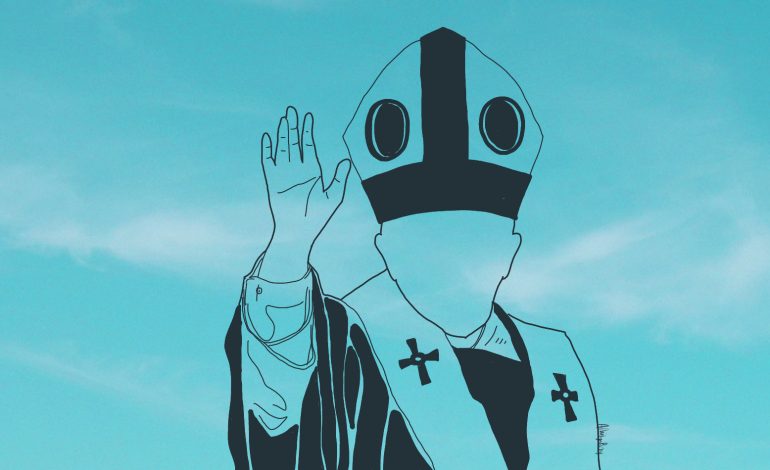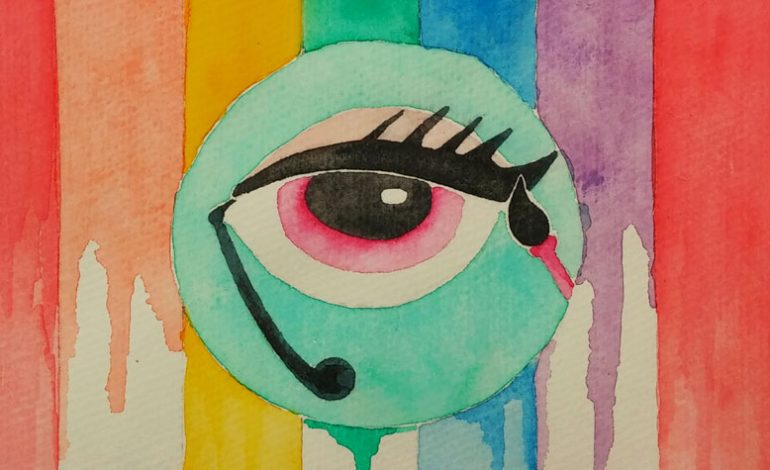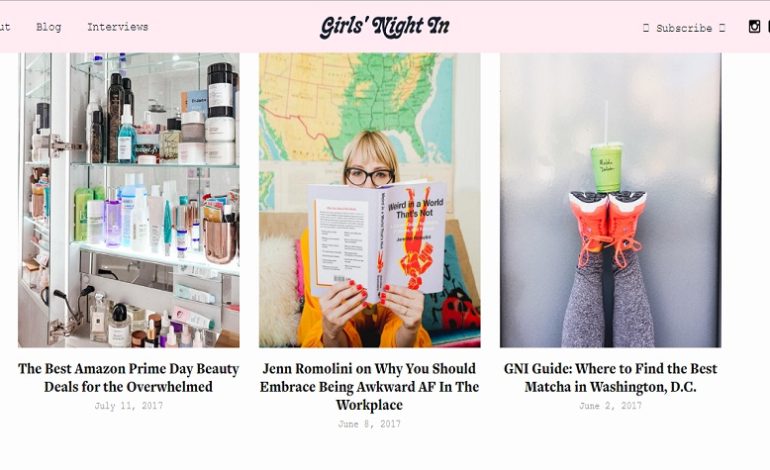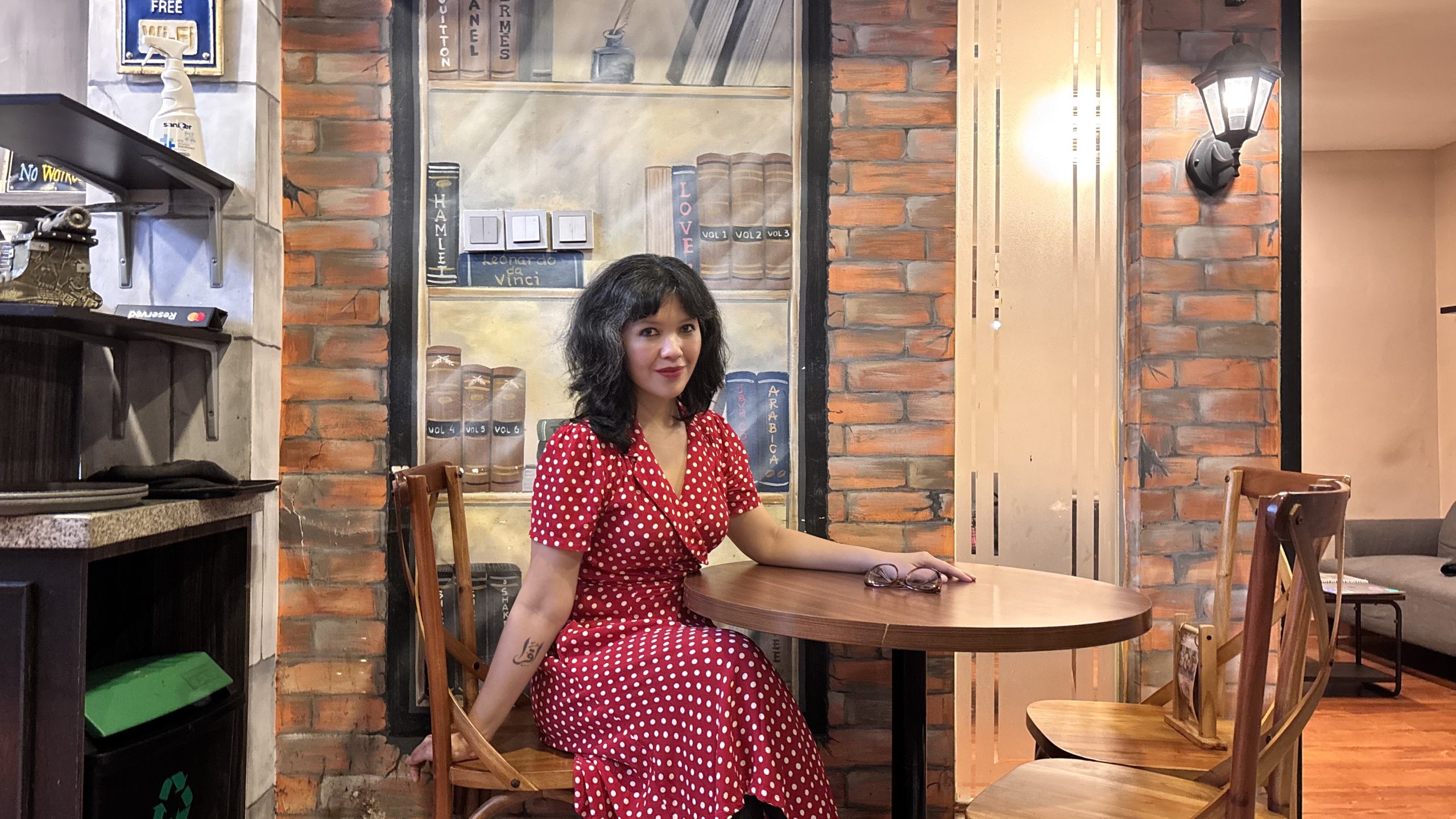I Am No Longer Comfortable Being a Catholic

Like most Indonesians, my life and social circles were defined by religion. I was raised as a Catholic and went to Catholic schools. The religion fit my personality. It is a mainstream, standardized, centralized, and introspective church – even the songs were subdued. Catholic history was tied with European history, and the language, tradition, and mysticism had inspired American pop culture, including The Godfather trilogy and Madonna’s songs, as well as their controversies.
My religious obligation was to attend the one-hour Mass every Sunday and swallowed the Holy Communion wafer after I was eight, and that’s about it. Even when you don’t attend the Mass, no one you know will question you.
I am not sure if my faith in Catholicism was typical of Indonesians or if it’s above average. I constantly got 8 out of 10 in the Agama (religious study) subject, and was attracted to the leftist Liberation Theology thoughts and arts found in the textbook, even as they were coupled with anti-abortion messages.
In university, I joined several Catholic organizations, and deliberately avoided the Indonesian groups since I wanted to have more diverse friends and wanted to avoid Indonesian Charismatic Catholics, whose number was increasing since it offered livelier service, more intensive group bonding, and – at least among the Indonesians – a more conservative theology closer to American Evangelical Christianity than to mainstream Catholicism.
Meanwhile, “old school” Catholicism wasn’t much fulfilling either. I was surprised with Australian Catholics’ preoccupation with homophobia, anti-abortion, even anti stem-cell research. They were also defensive about the allegations of rapes and cover-ups committed by priests and bishops in Australia that came out after the Boston Globe’s “Spotlight” team investigation in America.
Still, Catholic was my primary identity in my young adult life. I confessed to a priest once a month, regularly prayed in the shrine of Mary for a girlfriend and for perseverance in study. The Sunday or Saturday evening Mass became the springboard to dining and shopping with friends afterward.
This lifestyle continued after my return to Indonesia, as I joined Choice, a Catholic group for young adult singles (unmarried people, to be exact), and it became my primary social circle for the next seven or eight years. I had great moments there, it helped me to learn where I am now, and I think it was the best option I had.
I thought that by being an ally to feminism, I would become a better Catholic, but it didn’t happen. More of my friends joined a group for married men, and my family was horrified with what was going on in that group. One of our neighbors killed herself after she was ritually reconciled with her husband in that group’s retreat, and people who knew them blamed her.
I also have a feeling that Catholic Indonesians are moving in the conservative direction lately, strangely in accord with the homophobic and pro-nuclear family messages spread by conservative Muslims. Perhaps they have joined the prevailing sentiment in Indonesian media and institutions since last year, and perhaps this is a backlash against Pope Francis, who some Catholics find “too liberal.”
My sister received sexist memes and jokes spread by local Catholic figures via WhatsApp group, and puzzlingly some Catholics I knew approve the words of Elly Risman. Is it like what happening in Australia, where, after decades of accusing each other for being a false church, Catholic and Evangelical churches are now cooperating for conservative values?
Worse news came from Australia, where Catholic leaders defended Cardinal George Pell, who is charged with historical sexual abuse offences, and the man who gave me the Sacrament of Confirmation, Archbishop Denis Hart, said that he’d rather go to jail than reporting child abusers – and then threatened to fire Catholic employees intending to marry their same-sex partners.
Many people have ditched religion and believe that there is no God. I believe in God and spirits, and my personal reasoning is that there are so many things we still can’t comprehend in science, including multiverses, dimensions more complex than our three-dimension reality, and dark energy and dark matter.
I think, however, that I can no longer trust religion. And it’s simple. Religions grew out from life in agrarian world, from Judaism 2500 years ago to Sikhism about 500 years ago. A religion became mainstream when it was adopted and spread by an empire, and even in the industrial era a century ago, empires still used religion to shape nationalism, to transmit language and culture, to maintain public order, and to justify public policies.
We are now crossing toward the post-industrial world (which would be defined by mass consumption of renewable energy), and that is why you hear that people in developed societies are becoming non-religious – not that they are “more rational”, but their personal values are no longer in sync with the religious texts’ agrarian values.
I still need religion for the next decade: my parents are above sixty and I have to be ready for the time we are no longer together. I will have to deal with the funeral and the grief – even mature and wealthy Sting had to create a Christian-themed album to deal with the loss of his father.
I still read the prescribed Bible readings on Sunday morning, still respect Pope Francis, and am still interested in Indonesian Catholic news. But I no longer see myself as a “lost sheep”, or hope that one day I will find happiness in communion with other Catholics.
Some Christian churches have accepted female priesthood, and queer members, and modern liberal values. These churches are attempting to synthesize the past with our present, but I can’t see them flourishing in Indonesia or Asia. Many conservatives are pretty good in using the social media, while also courting or coercing the governments.
I still want to keep in touch with my old friends from the church. But I wish we can define ourselves larger than our religion.
This post is inspired by #EmptyThePews on Twitter.
Read Mario’s take on the link between poetic jihadists and toxic sensitive masculinity and follow @MarioRustan on Twitter.






















